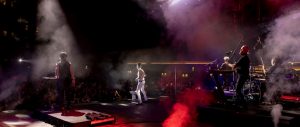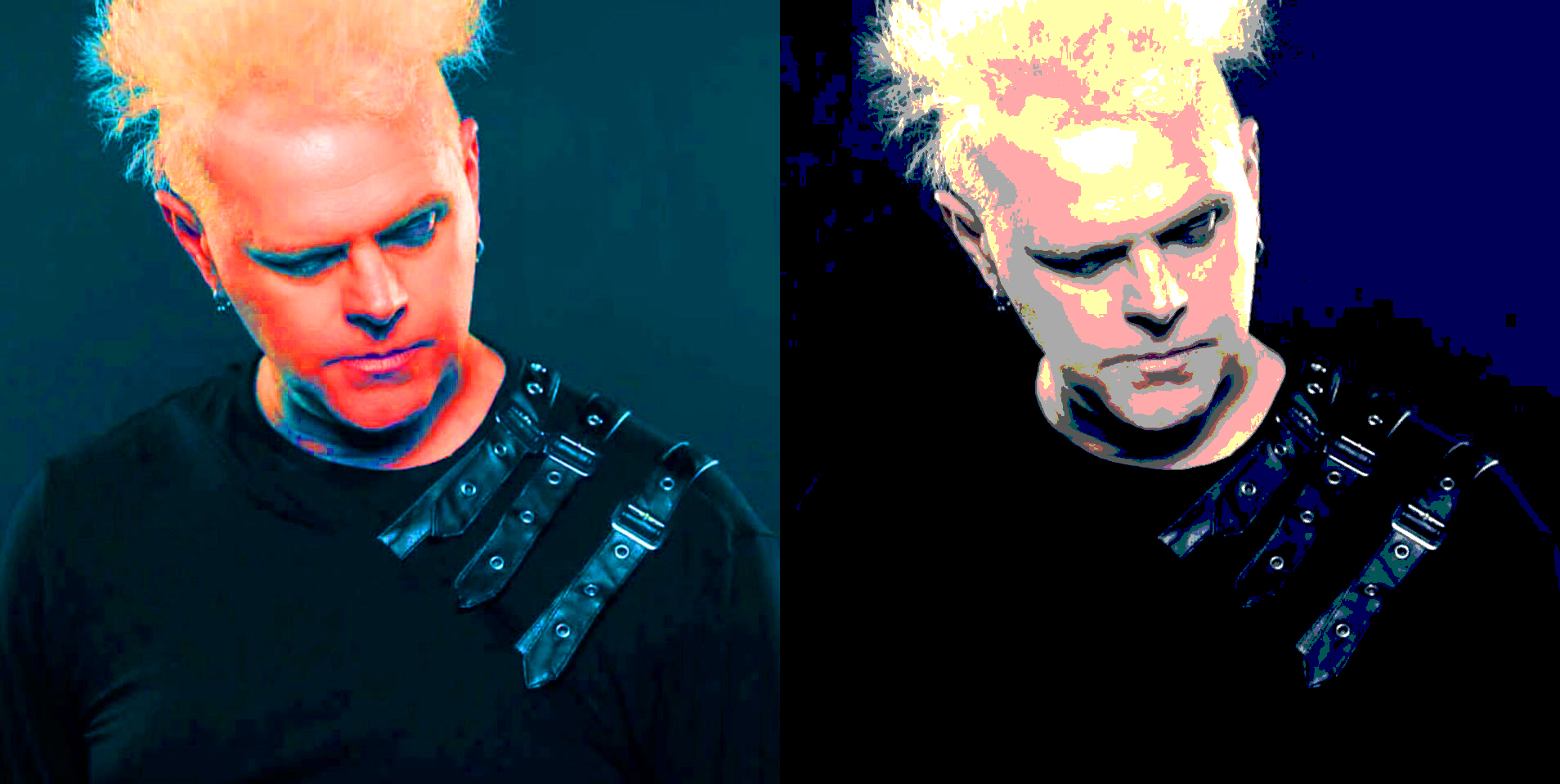By Keith Walsh
The sound of legendary synth rock hall of famers Depeche Mode has always been complex and rich. It’s no surprise then, that when it comes to reproducing the sound of DM, there’s a good deal of synth wizardry involved. I spoke with Brent Meyer, leader and musical director of Strangelove, about the gear he uses and his experiences recreating the sounds of Depeche Mode for the tribute project.
As Meyer explains: “My hardware gear I go to most is Roland FA-08/06, Moog Lil Phatty, Emulator II+, Korg O1/w, Behringer DeepMind12 and some other assorted 90s rack ROMplers.” In addition, Meyer said, there’s some track recreation that goes on behind the scenes with Strangelove, for which he relies on the Arturia Suite, the Korg Legacy Plug-In Suite, and soft synths by Rob Papen. And for his recent solo projects, Meyer told me he is using the phenomenal virtual synths created by Cherry Audio.
When recreating Depeche Mode, Meyer told me one technique he employed is capturing audio from vintage EMU Emulator samples, with their oversized 5 ¼ floppy discs. These devices, which originated in the early 80s, are less than roadworthy, and it’s thanks to digital technology that their sounds can be enjoyed without risk of failure.
When it comes to reproducing the early 80s Depeche Mode songs, Meyers has lots of praise for the arrangements of Alan Wilder: “They had several producers through that period where he was active in the band, but I think a lot of the continuity is because he was kind of the band’s built-in producer and he fulfilled the producer role within Depeche Mode as much as co-producers they would bring on.”
I suggested that the first few Depeche Mode albums featured rather simple songs that were artfully arranged. Meyer, as an unofficial historian of Depeche Mode, agreed. “The tireless work of arranging…sometimes a very simple block chord, you know, cassette recordings Martin (Gore) would bring in, with — here’s a melody, some block chords and and lyrics to go with the melody.” In turn, Wilder would create the complex melodic arrangements that on the surface seemed simple.
“Fluffy, Poppy Boy Band”
One of the many factors that have made Strangelove perhaps the most popular Depeche Mode tribute act is an ability to follow the band through the phases of their changing sound across decades and many hits. To achieve this, Strangelove relies on tech, vintage and new. In addition to using the many patches created by Alan Wilder (which were acquired by Meyer and employed by Julian Shah-Tayler, or ‘Oscar Wilder,’ Strangelove are Roland endorsees and employ three Fantom 06 keyboards when playing live.
As for the early acceptance of Depeche Mode, starting out in the early 80s, Meyer refers to the stories told by his bandmate Julian Shah-Tayler, who grew up in Britain. “They were kind of slagged off, kind of like we would view NSync, here in the States,” Meyer said. “Like, ‘that’s just a fluffy, poppy, boy band,’ because they were like 18, or 19 when that first stuff came out. Speak And Spell is an iconoclastic album, sonically. It had that pop sensibility, through the lense of this incredible sonic palette.”
As for the worthiness of Depeche Mode to be in the Rock and Roll Hall of Fame, Meyer added: “Some of my favorite bands, it’s questionable whether they’re rock and roll. Talk Talk and Radiohead. It’s kind of more of the post-rock. Which is really just, rock and roll and this point is really instrumentation. That could be Mahavishnu Orchestra, or it could be Sex Pistols, or could even be whatever, Green Day or something.”
Meyer pointed out that with the incorporation of a live drummer and a new keyboardist, Depeche Mode became a massive arena rock phenomenon, not to mention that their response to the grunge movement in the 90s, with the release of Songs Of Faith And Devotion, is something to consider.

‘Swampy Grunge World’
“These days,” he said, “when you see Depeche Mode, I think they manage to scale, especially with their live performances. They responded in the 90s, with the addition of Christian Eigner, the drummer. Peter Gordeno is their live keyboardist that’s replaced Alan Wilder, live, and typically the producers fulfill Alan’s role in the studio even though Peter plays some of the technically complex stuff.” (Sidebar: Meyer produced some side projects with Eigner).
“When they introduced him,” Meyer said, “even as early as Songs Of Faith And Devotion, there was some friction within Depeche Mode, because Dave had moved to L.A. and had been turned on to bands Soundgarden, Rage Against The Machine, Alice In Chains, and was just really in all of that swampy grunge world, and wanted to bring some of that into Mode, and had to figure that out. Because Violator is so clean and pristine, and they had to figure out how to interject some of that sludge, and I think they did a great job of that.” (Eigner officially joined Depeche Mode in 1997, Gordeno in 1998).
Whichever phase of Depeche Mode is your favorite, you might agree that their evolution as a band is remarkable. What do you think about their induction into the Rock and Roll Hall Of Fame? Comment below!
With the pandemic easing, Strangelove are playing shows across the U.S, including with the opening act The Electric Duke, the stellar Bowie tribute of Julian Shah-Tayler. Hopefully you can experience these artists for yourself in the near future.
Strangelove Online
Strangelove Facebook
Brent Meyer Facebook
finis

I love reading this even though the technical parts are over my head
Very cool article!
Thanks, I’m glad you enjoyed it!